
A young James A. Baker III with his grandfather and father, the dominant figures of his early life. He and his friends nicknamed his strict dad “the Warden.”

His grandfather, later known as Captain Baker, was one of the prime forces in the development of modern Houston but warned his grandson to stay out of politics.

Baker’s parents, James and Bonner, visiting Hawaii in 1929. After thirteen childless years, his mother discovered she was pregnant on the return trip.

Born in Houston in 1930, months into the Depression but isolated from its effects, Baker was “the hero son,” expected “to succeed in a grand way.”

Baker’s mother, Bonner Means Baker, shown with his sister, Bonner, told him, “You have quite a legacy to live up to.”

At Princeton, half a continent away from the Warden, “I just went nuts having so much fun, I damn near flunked out.”
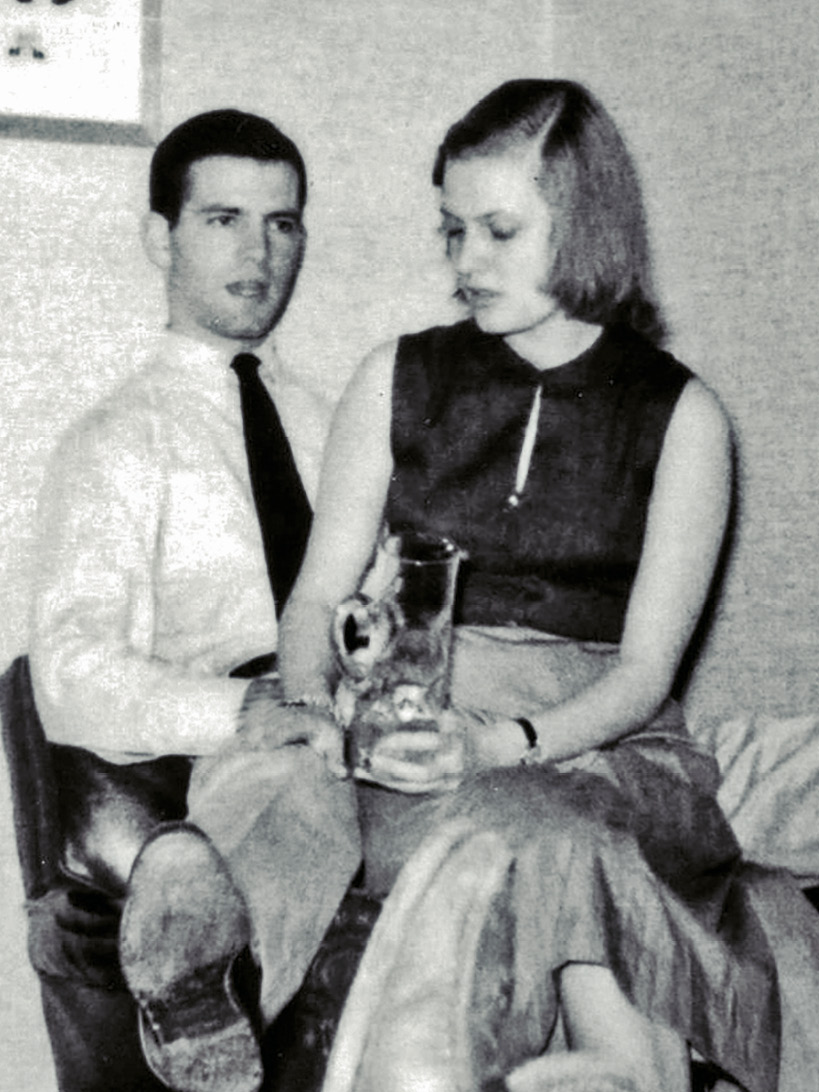
On spring break of sophomore year, Baker met and got “the screaming A-bomb hots” for Mary Stuart McHenry of Ohio. The two were married in 1953.
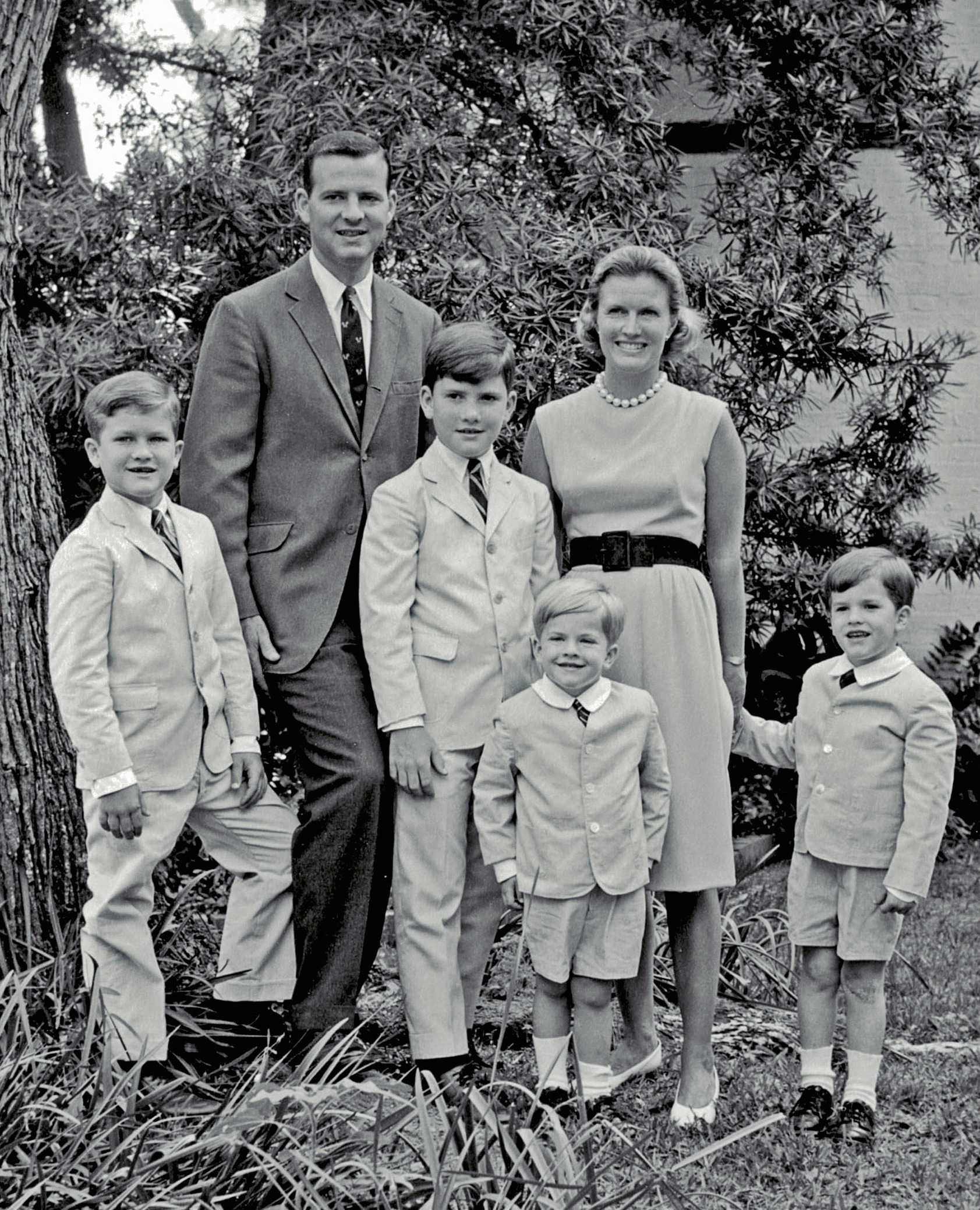
By 1961, they had four young sons: Mike, Jamie, Doug, and John. Tragically, Mary Stuart died of cancer in 1970.

Baker and George H. W. Bush became best friends and doubles partners in the 1960s. In 1970, when Bush ran for Senate, he enlisted the grieving Baker, previously a Democrat who steered clear of politics, to run the campaign in Harris County.
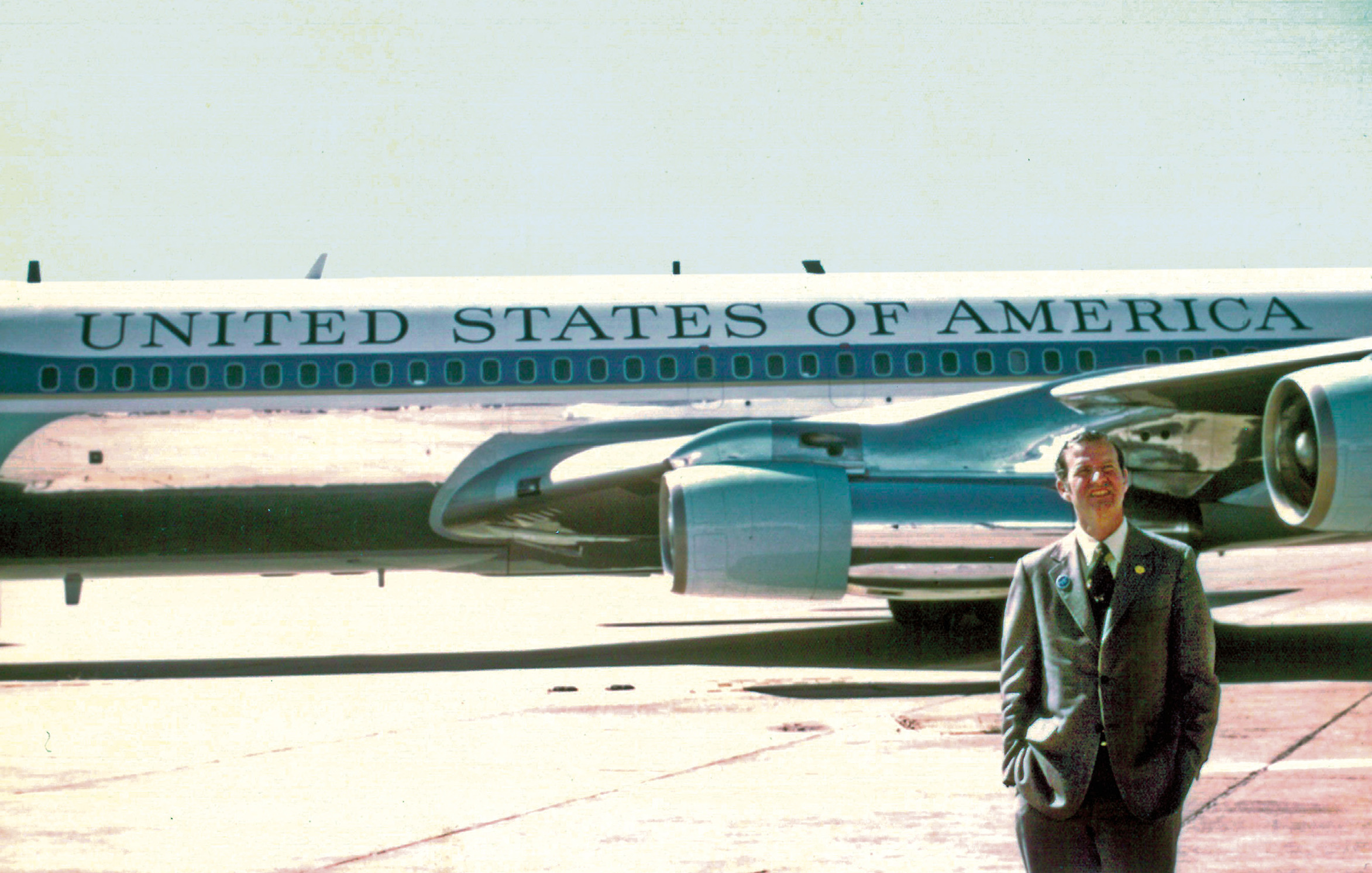
Baker came to Washington in 1975 and within a year had become President Gerald Ford’s campaign chairman, riding with him on Air Force One.
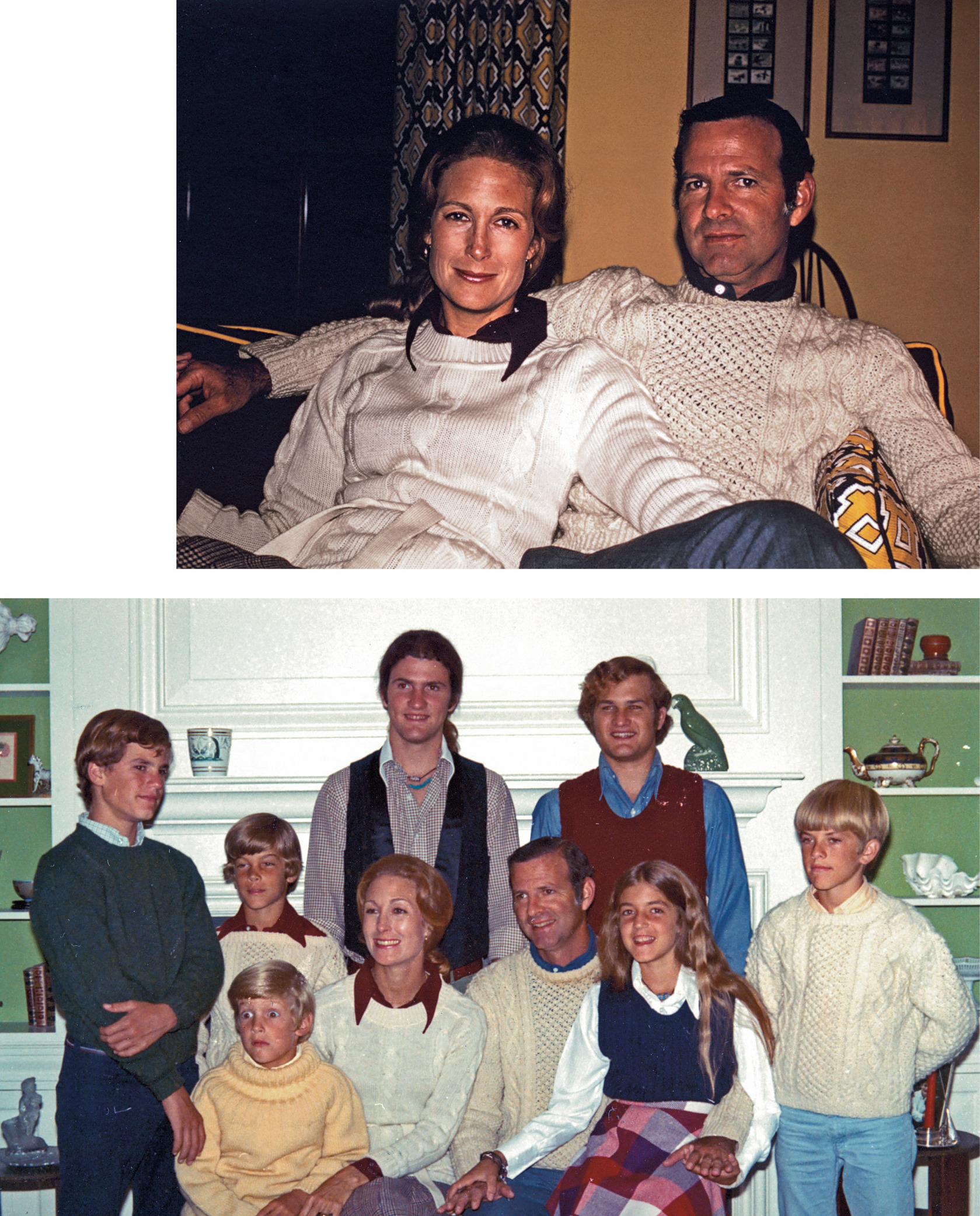
After Mary Stuart died, Baker married her close friend, Susan Garrett Winston, in 1973. Between them, they had seven children, a complicated real-life “Brady Bunch.”

With Baker’s help, Ford beat Ronald Reagan for the Republican nomination in the 1976 campaign, but the president’s pardon of Richard Nixon was the “eight-hundred-pound gorilla in the room, always hanging over everything” and helped cost him the election in the fall to Democrat Jimmy Carter.

Despite running two Republican campaigns against Ronald Reagan, Baker became his White House chief of staff in 1981 and, as Brent Scowcroft put it, “co-president in a way.”

Baker still loved to play tennis with now-Vice President Bush, although Bush joked that his friend had a “powder puff serve.”
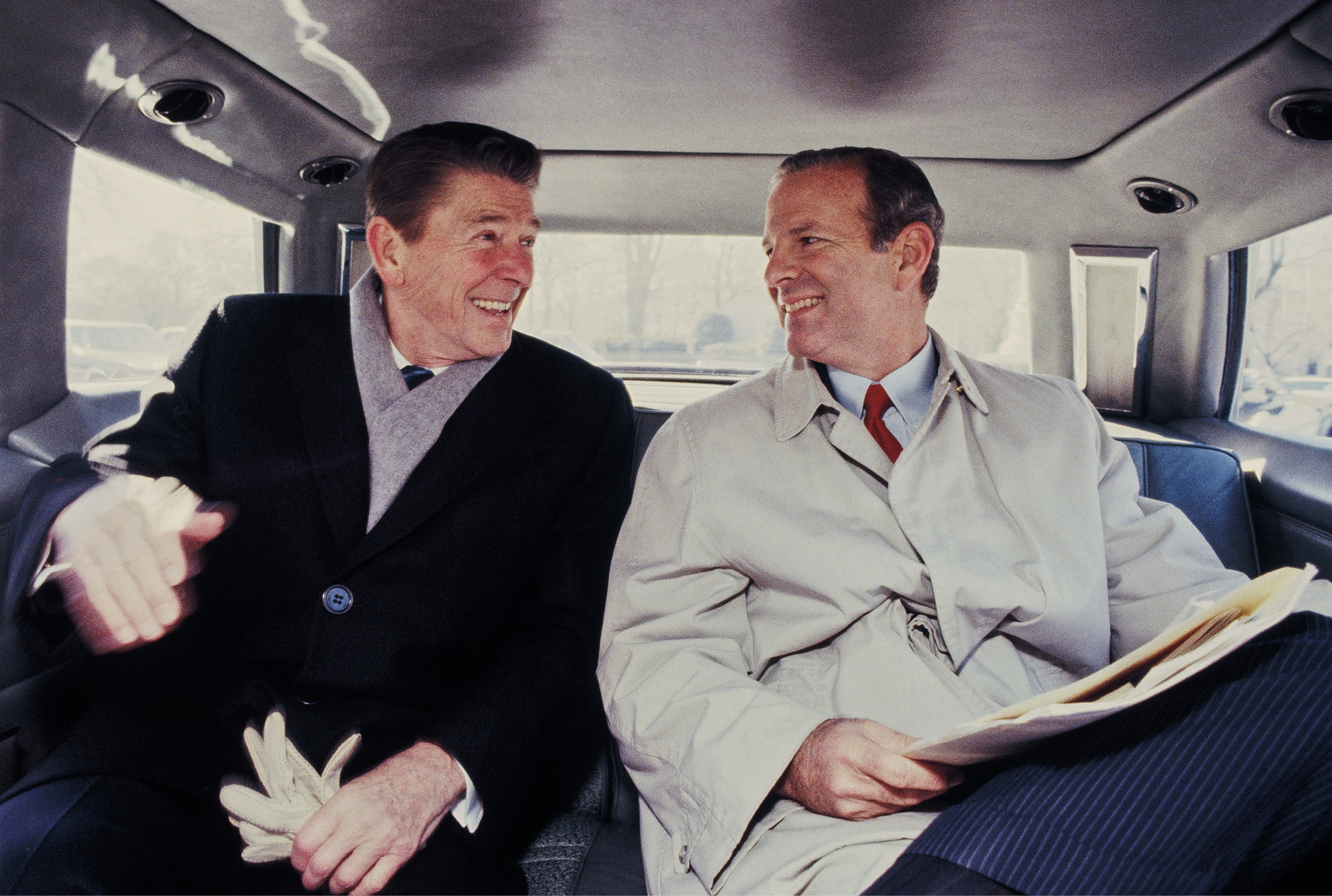
Reagan’s more conservative allies never trusted Baker, but the president defended him to critics. “Jim, if ever there was a Reaganite, you’re it.” Courtesy of David Hume Kennerly/Getty Images

Baker was first among equals in the famously feuding Troika that included Michael Deaver, left, and Ed Meese. “Every single day Jim Baker was in that White House he accumulated power,” a rival lamented.
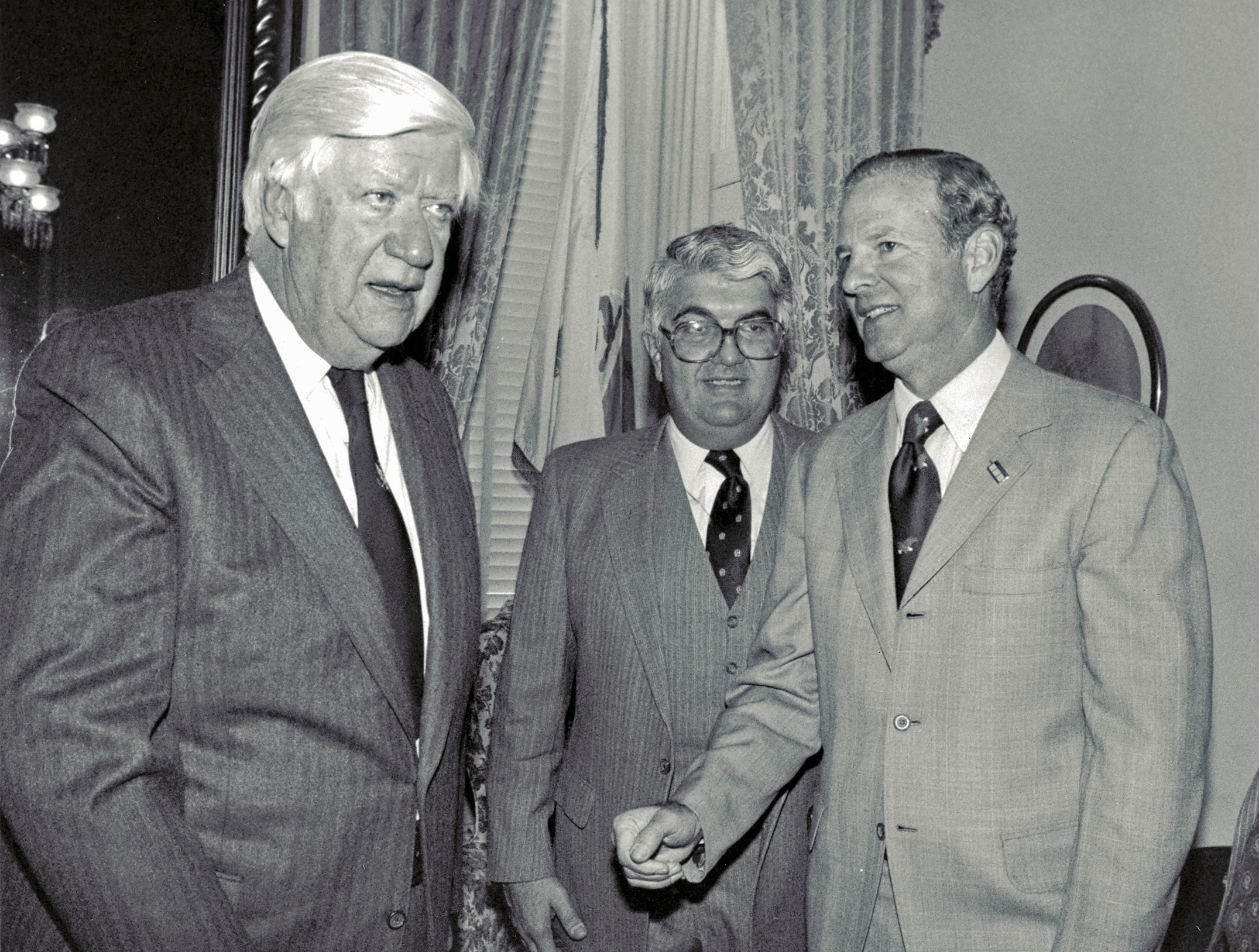
A pragmatist amid the Reagan Revolution, Baker urged the president to work with Tip O’Neill, left, the Democratic speaker of the House.
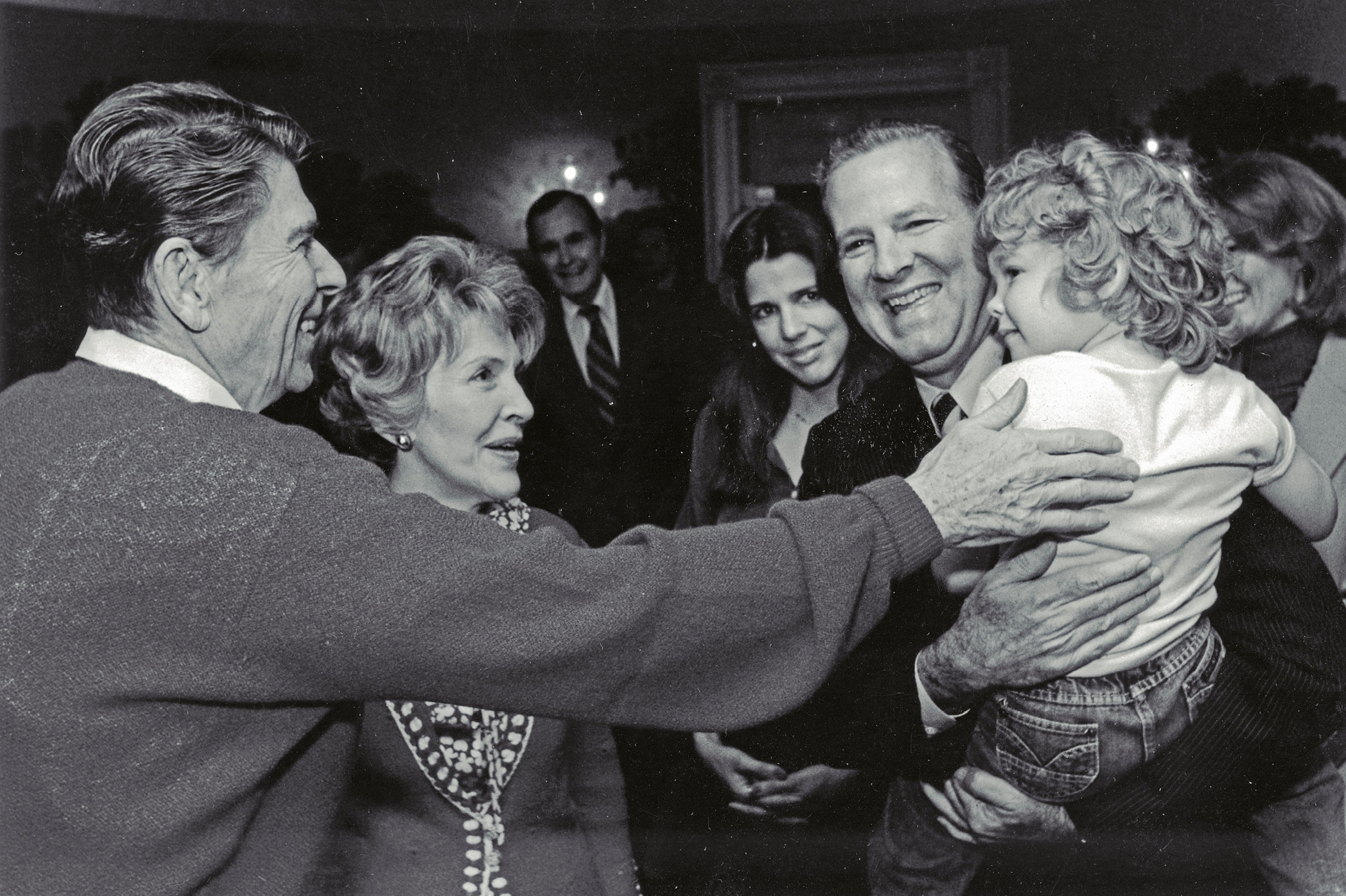
Baker and Susan had a “bonus baby,” Mary-Bonner, their eighth child, after Baker’s ill-fated run for attorney general in Texas, and she became a favorite of the Reagans.

Baker used to quote Reagan as saying, “I’d rather get 80 percent of what I want than go over the cliff with my flag flying.” Baker was in charge of the getting. Exhausted after four years, he engineered a shift to become Reagan’s second-term treasury secretary.

In 1989, his best friend became the forty-first president of the United States and Baker became his secretary of state. They were closer than any president and secretary of state in history, but there was also a brotherly rivalry. “If you’re so smart, how come you’re not president?” Bush would say when he became exasperated.
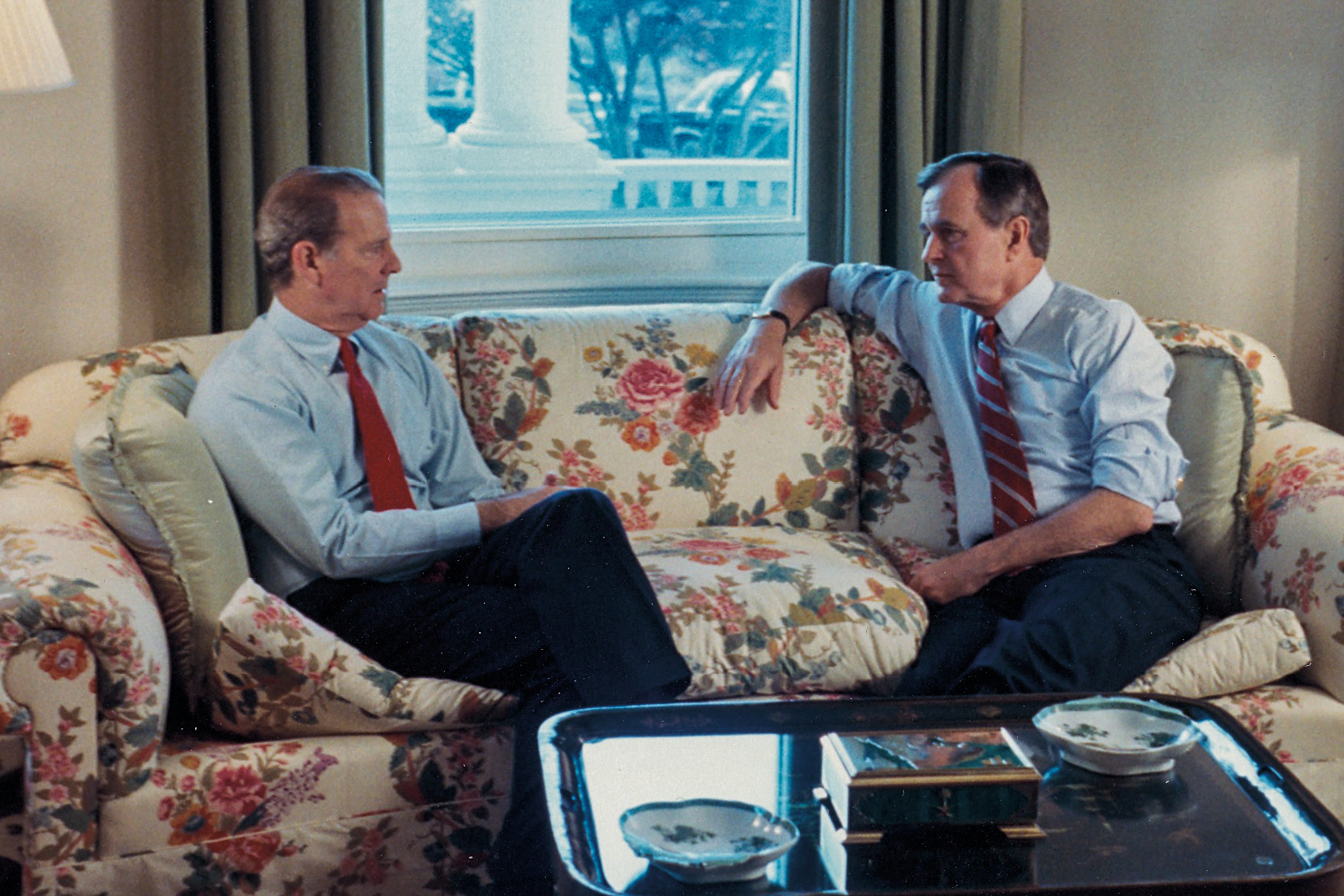
Baker and Bush plotted strategy for the 1988 race at the vice-presidential mansion. “Let’s not forget, it’s about winning,” Baker used to say.
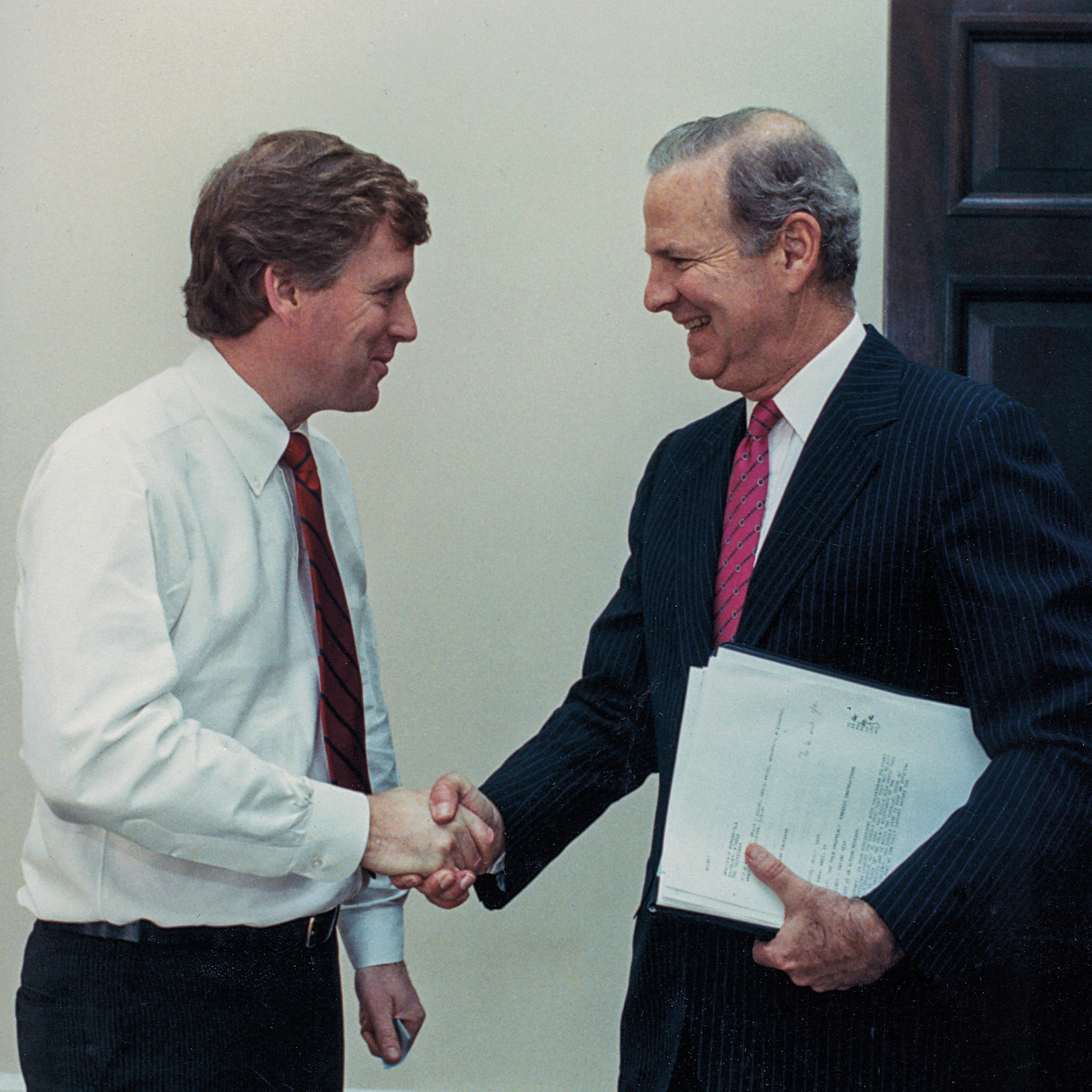
Bush picked Dan Quayle for vice president without telling Baker, in what some saw as an act of rebellion against the perception that his friend would really be the “deputy president.”

To win, Baker would rely on the negative campaigning skills of Lee Atwater, who privately resented Baker. “Lee was running on paranoia all the time,” a colleague said.

Every week, Baker had breakfast alone with Dick Cheney, the defense secretary, and Brent Scowcroft, the national security adviser. It was an unusually seamless team. Baker and Cheney © Bettman via Getty Images

During the Democratic convention in 1988, Baker and Bush went camping in Wyoming, Baker’s favorite escape.

Barbara Bush was fond of Baker but she prized loyalty and wasn’t above wondering whether his first loyalty was not to her husband but to himself. Mark Reinstein/Shutterstock.com
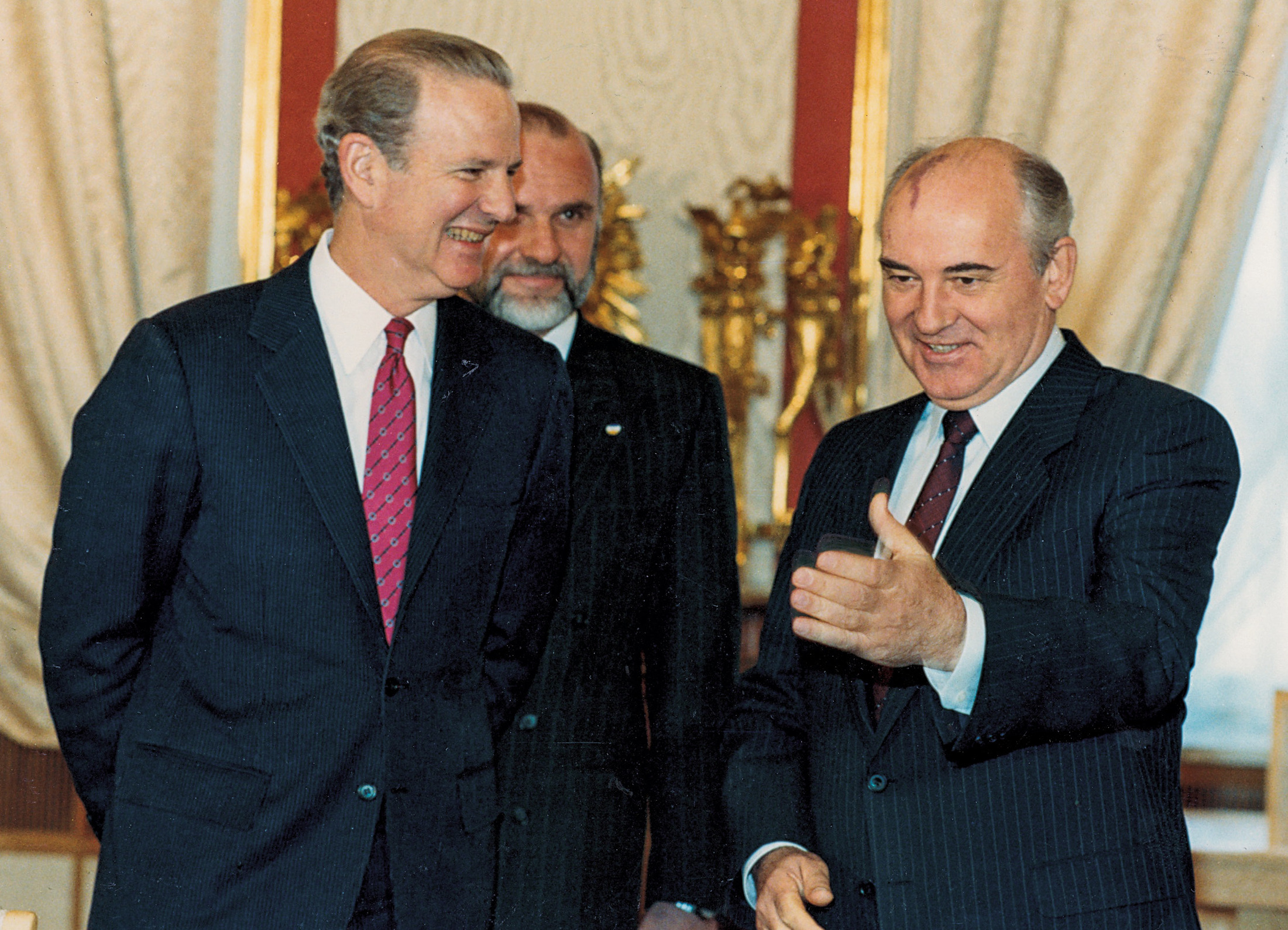
Baker worked closely with Mikhail Gorbachev to manage the end of the Cold War and reunification of Germany. When Dick Cheney publicly expressed skepticism about Gorbachev, Baker made the White House disavow him. “Dump on Dick with all possible alacrity.”
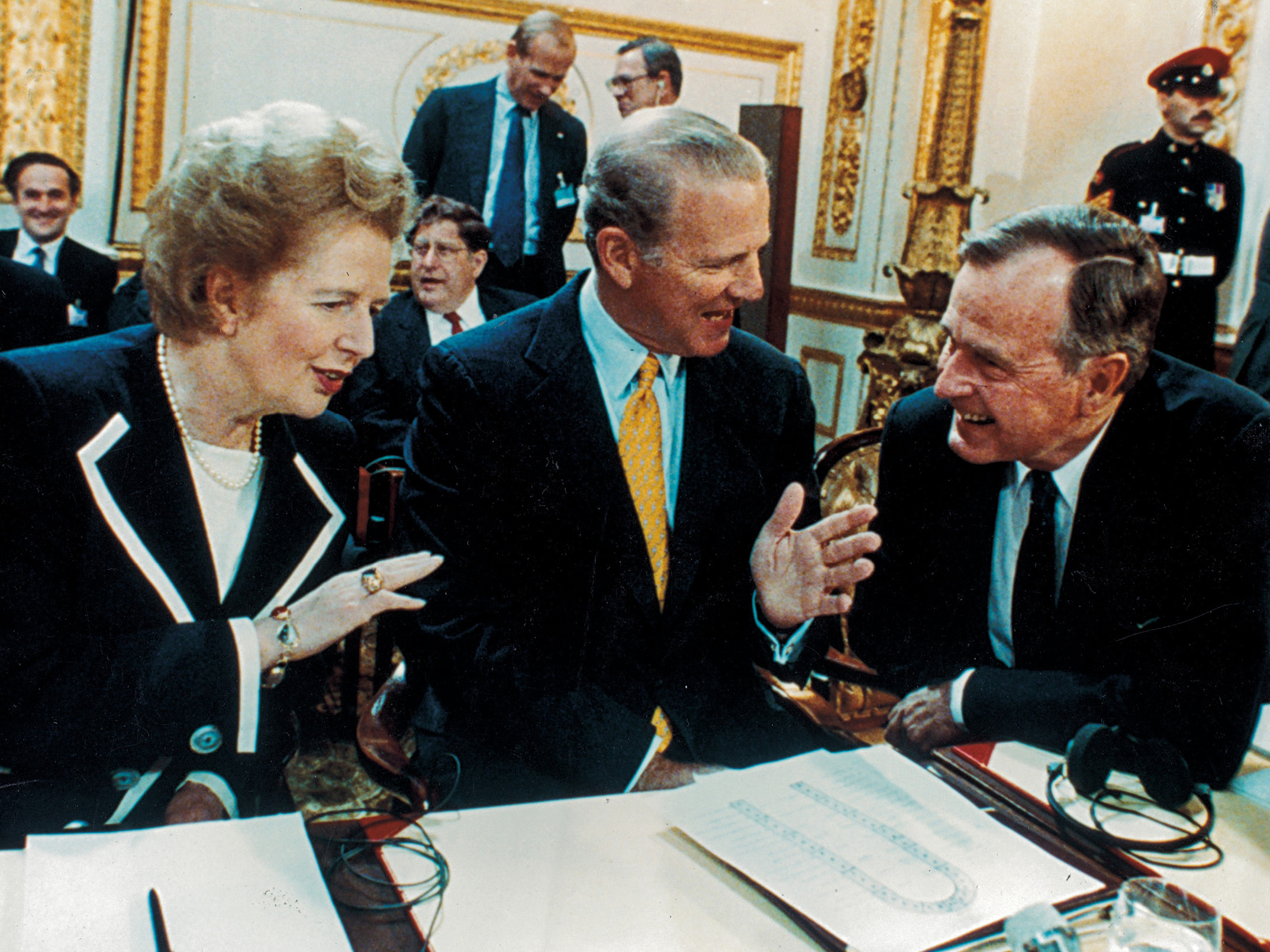
Margaret Thatcher was a skeptic of German reunification—and of Baker. “He had a mixed record,” she thought.
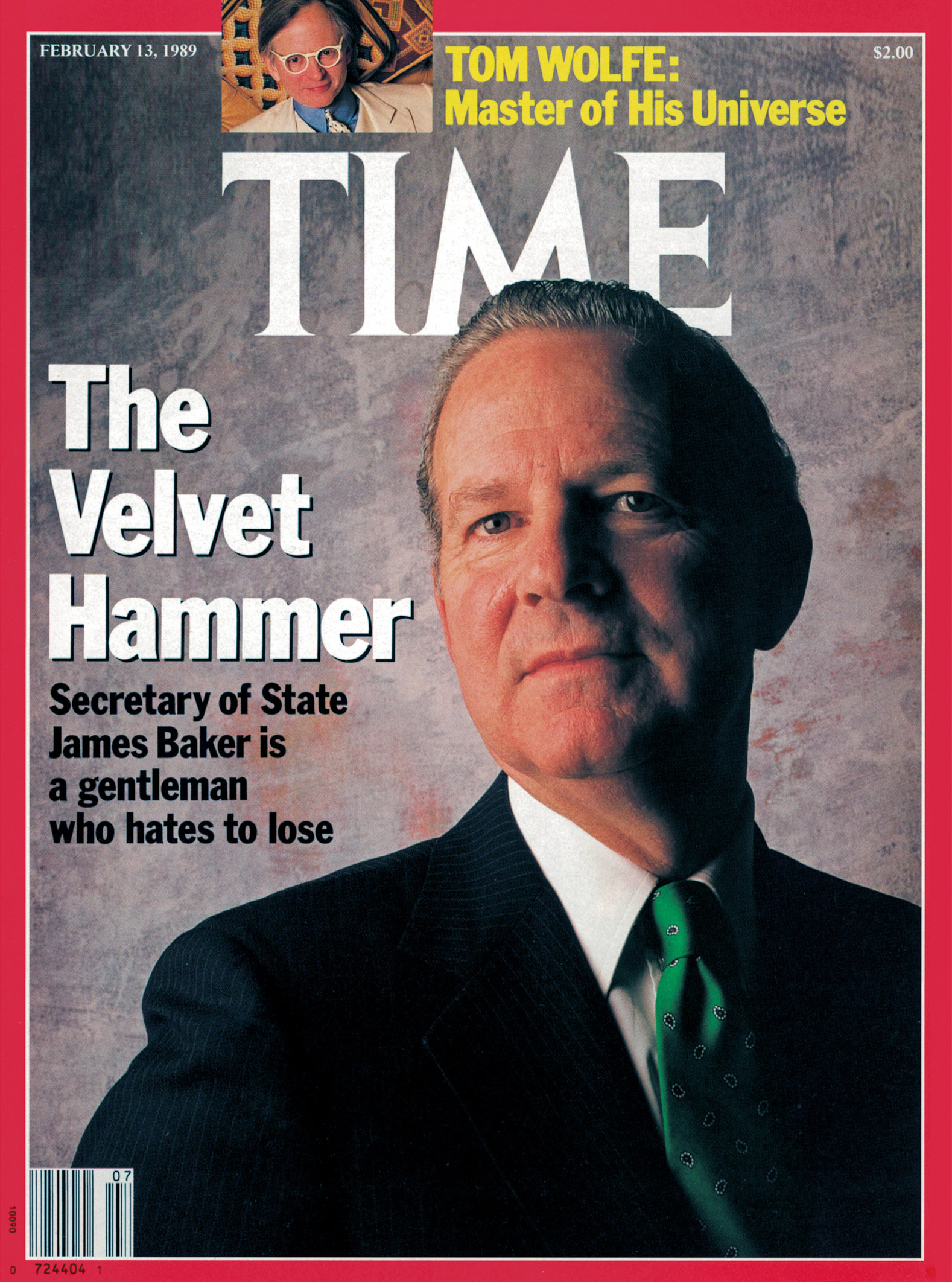
Courtesy of Time magazine

After the fall of the Berlin Wall, Baker came to see for himself and became the first secretary of state to venture into East Germany beyond Berlin.

Baker forged a strong relationship with Soviet Foreign Minister Eduard Shevardnadze, even inviting him on a Wyoming fishing trip. “That was a real bonding experience.”

After Saddam Hussein invaded Kuwait in 1990, Baker assembled a coalition to oppose him, but worried about another Vietnam. Greg English /The LIFE Picture Collection via Getty Images

After the war, Baker shuttled around the region organizing a Madrid peace conference bringing Israel together with its Arab neighbors and the Palestinians for the first time.

At the conference, he conferred with his close advisers Dennis Ross, left, Ed Djerejian, and Margaret Tutwiler, part of the “plug-in unit” he brought with him to each job. David Rubinger/The LIFE Images Collection via Getty Images
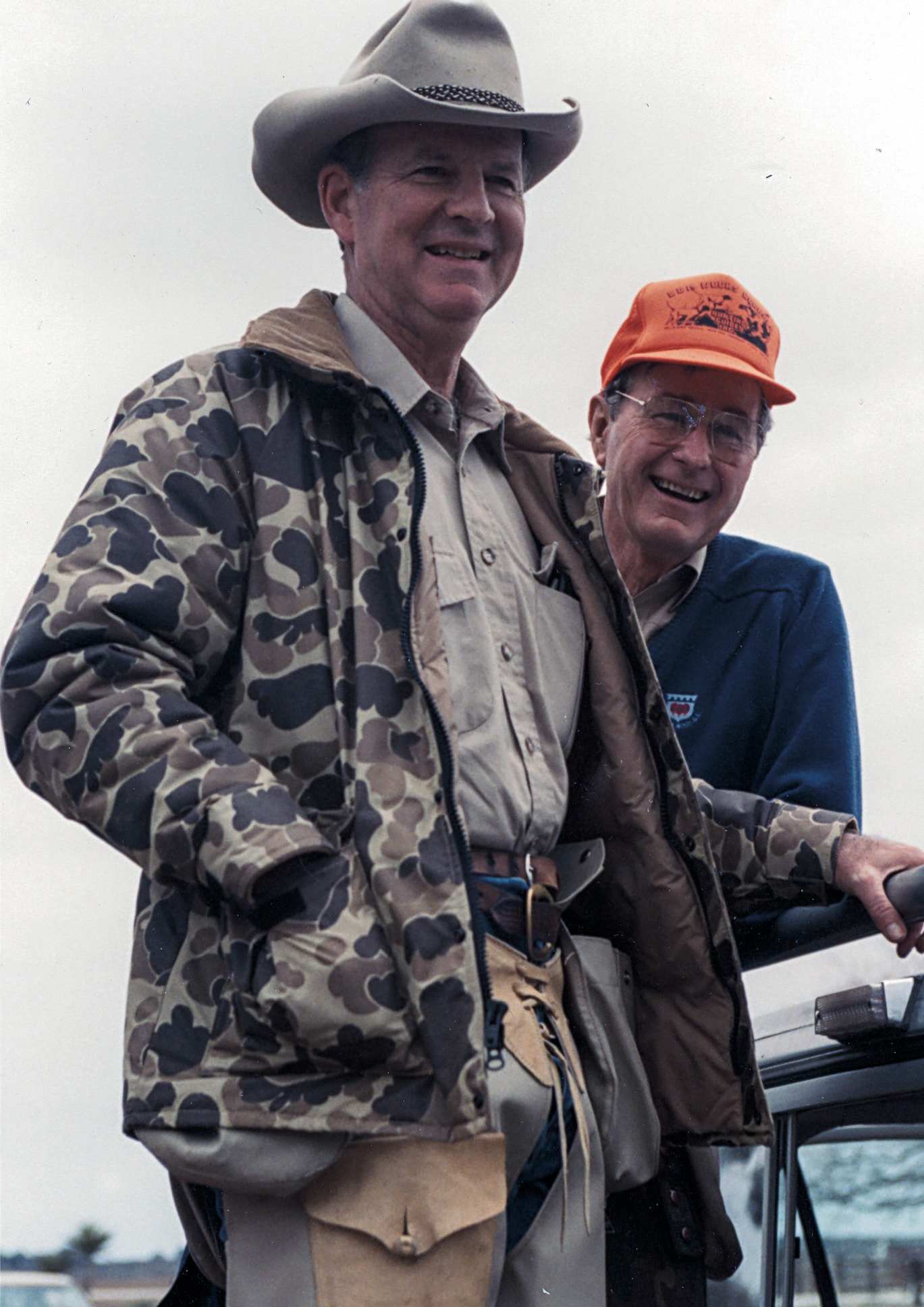
After Bush lost reelection in 1992, he and Baker remained close but other Bush family members were upset at Baker, including George W. Bush.

But when his own election was in trouble in 2000, the younger Bush turned to Baker to manage the recount in Florida, where he overwhelmed his Democratic counterpart, Warren Christopher. “He looked strong, Chris looked weak.” Patrick D. McDermott/UPI
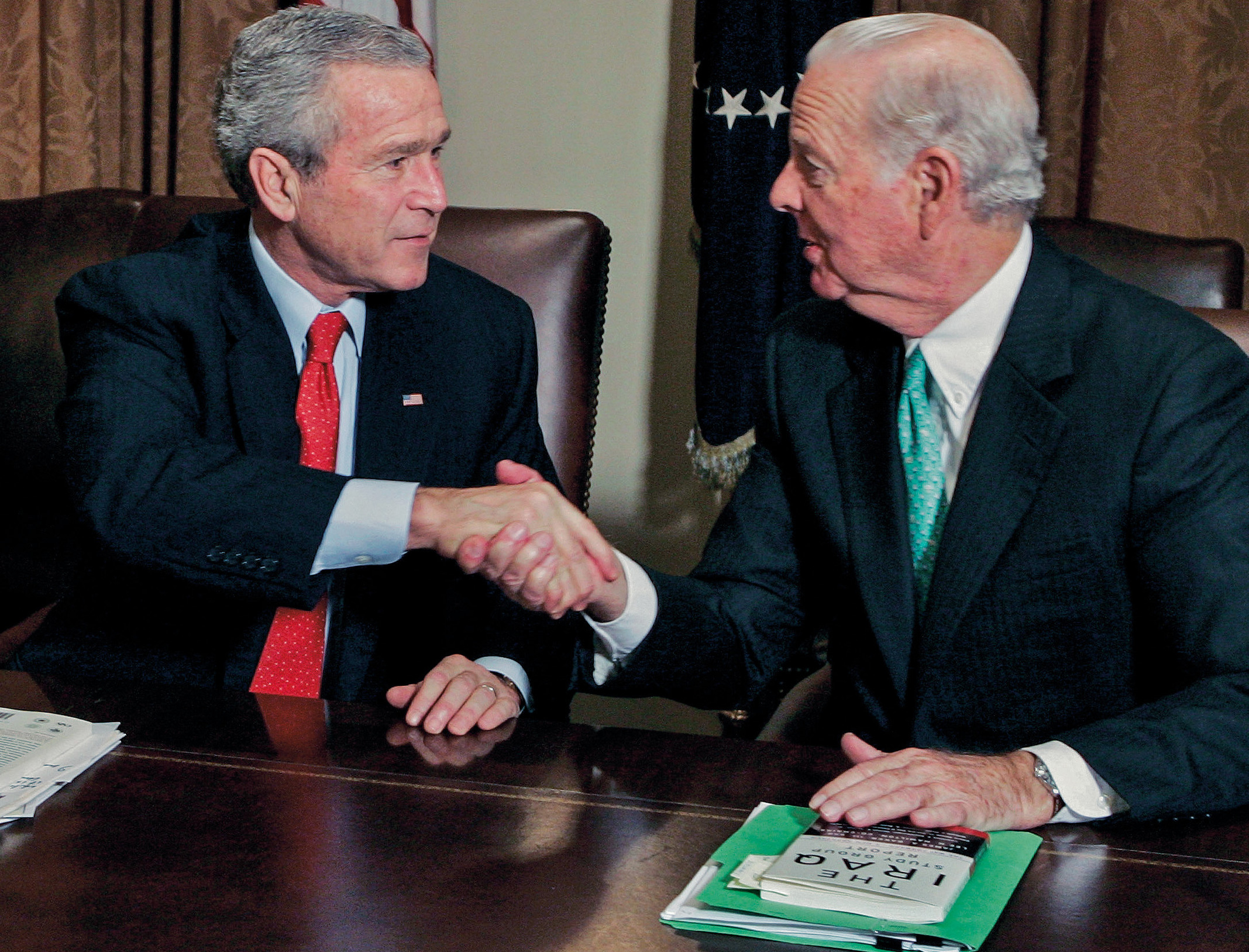
When the younger Bush found his own war with Iraq flailing, Baker oversaw the Iraq Study Group seeking a way out. Larry Downing /Reuters

In later years, the Bakers and Bushes returned to Houston, the struggles of Washington left behind. When Bush died in 2019, Baker was at his bedside, rubbing his feet. Above, the two families gathered at the 2010 dedication of a bronze statue of Baker set across a Houston park from one of Bush, the two friends facing each other in perpetuity. Michael Paulsen / Houston Chronicle